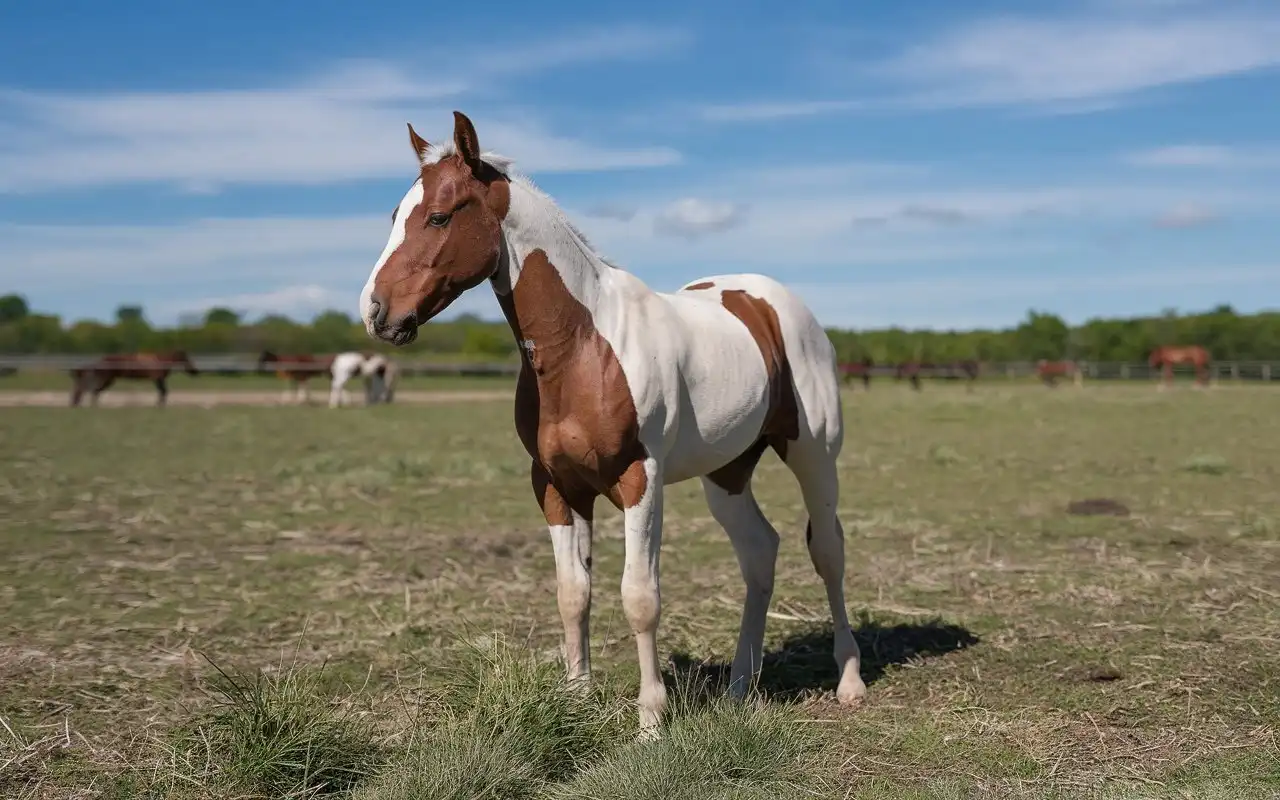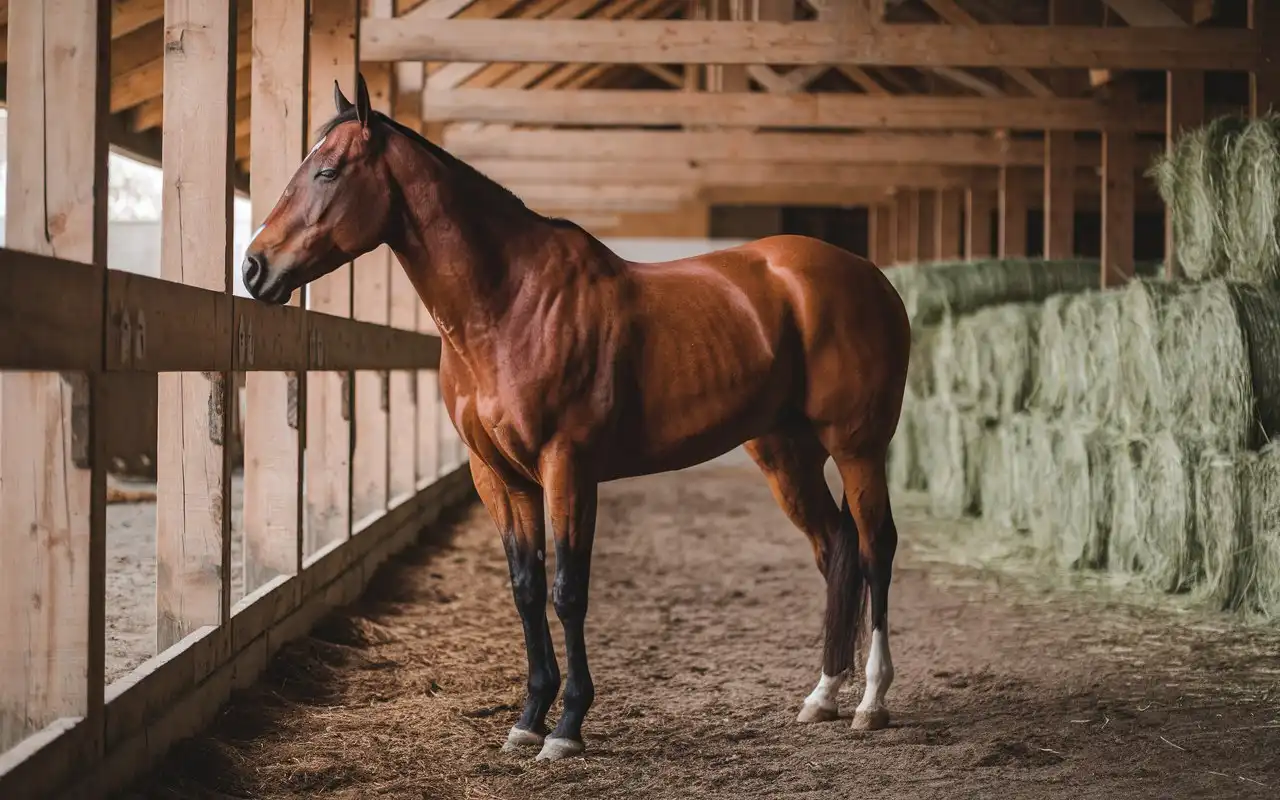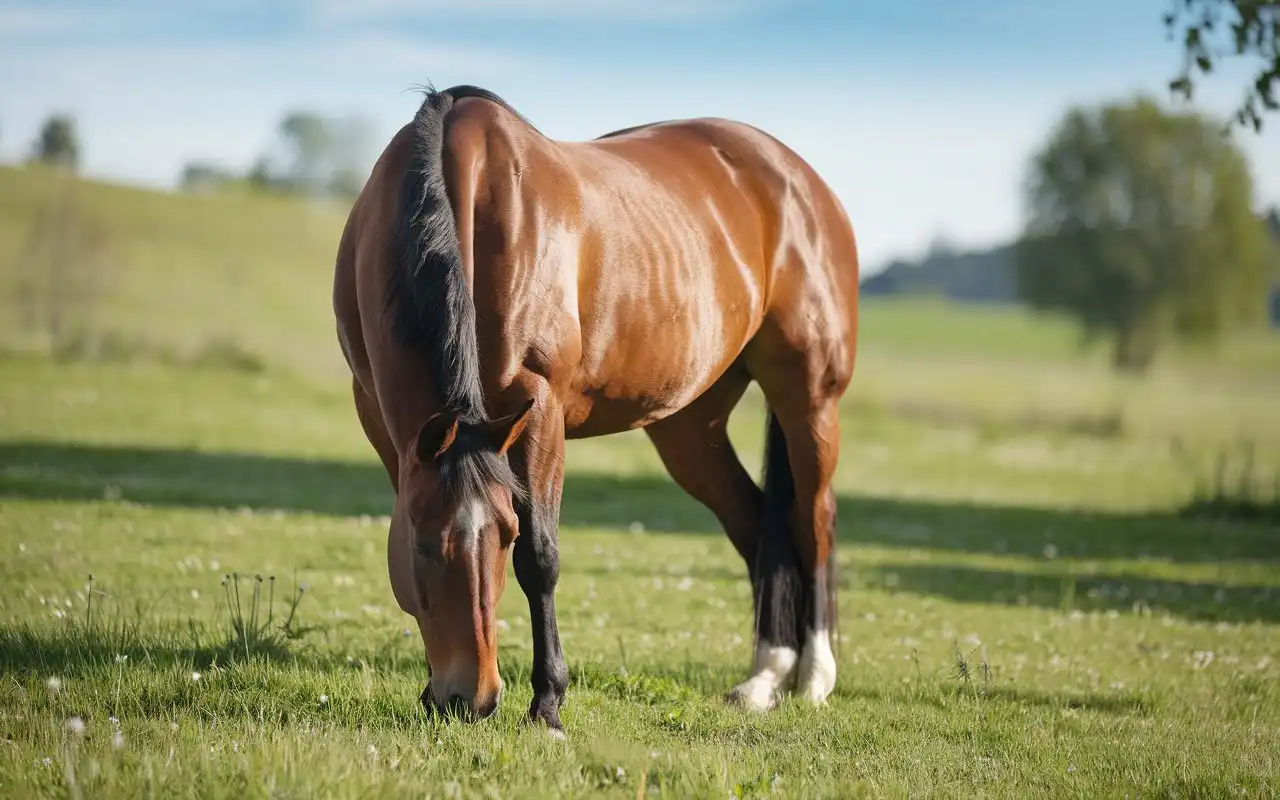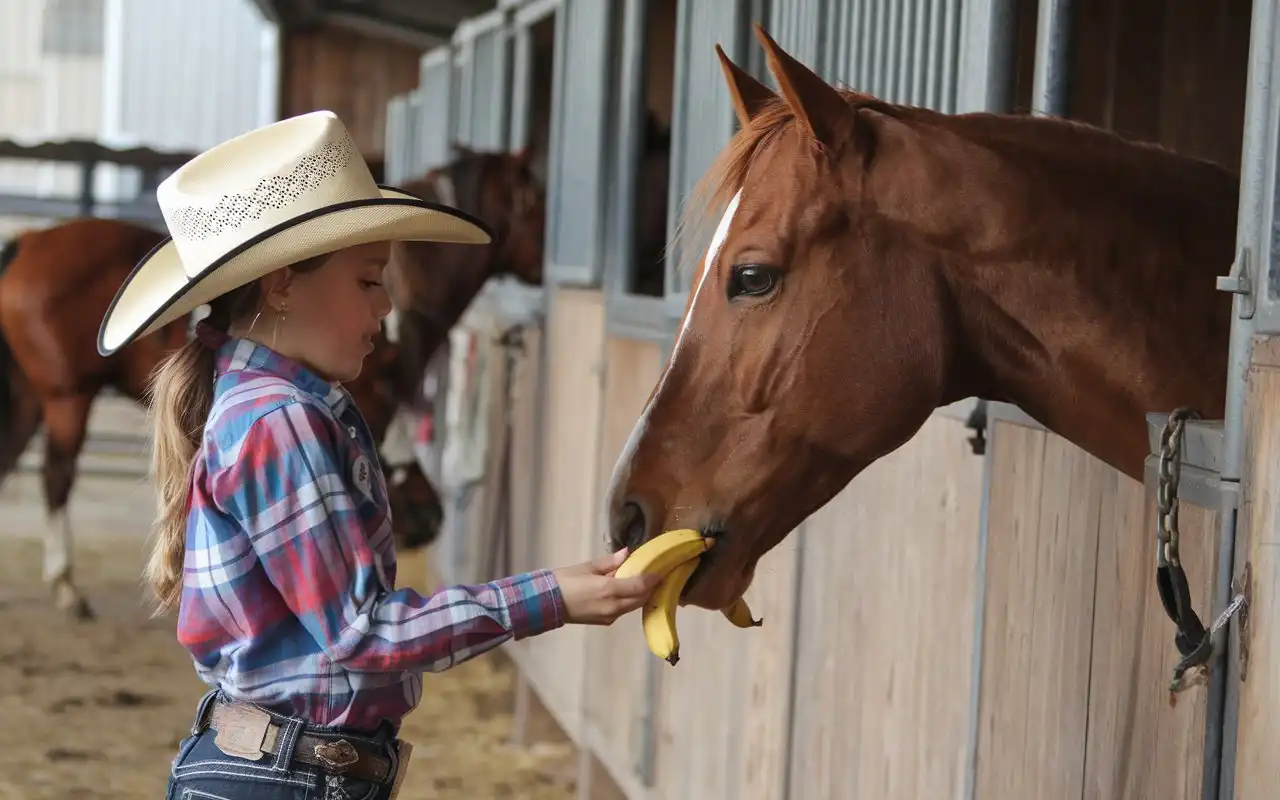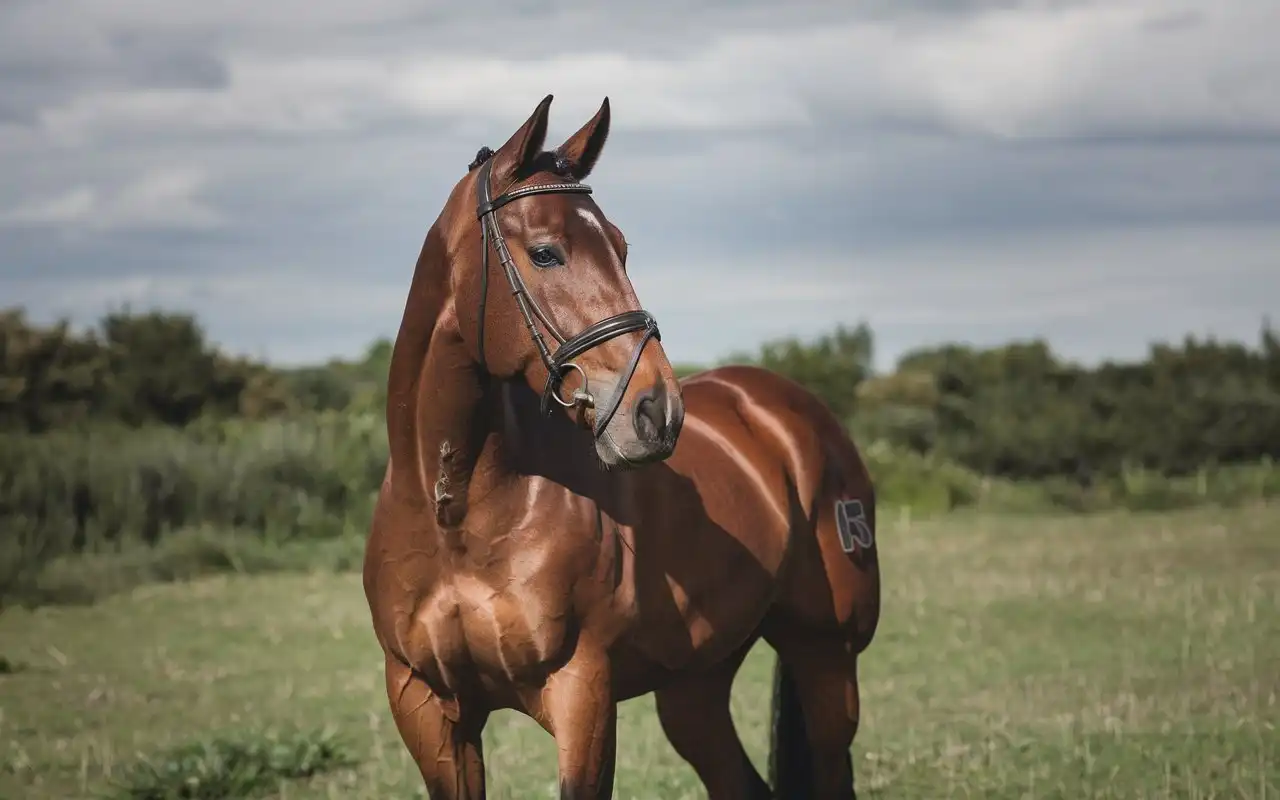Caring for newborn horse hooves is essential to ensure that the foal grows into a healthy and sound adult horse. Hoof care, if neglected during these early stages, can lead to long-term problems. In the wild, foals’ hooves receive natural wear and tear, but domesticated foals need more active care. This article will guide you on how to care for newborn horse hooves. We’ll cover cleaning, trimming, and how to prevent hoof problems.
Table of Contents
Understanding Newborn Horse Hooves
Structure of a Newborn Horse Hoof
At birth, a foal’s hooves are soft and fragile, composed mostly of keratin. These early hooves are different from adult horse hooves, which are harder and more durable. Newborn horse hooves are more pliable and can be prone to injury if not cared for correctly. The hoof grows quickly in the first few weeks and is susceptible to damage from rough surfaces and poor living conditions.
Differences Between Newborn and Adult Horse Hooves
Adult horse hooves can withstand various conditions. But, newborn hooves are softer and need more care. The growth rate of hooves also differs between foals and adults. Newborn foals often have thinner hooves, which means they can wear down faster, especially if the foal is not moving on proper surfaces. Regular care is crucial to avoid problems like bruising and infections that can impact their future hoof health.
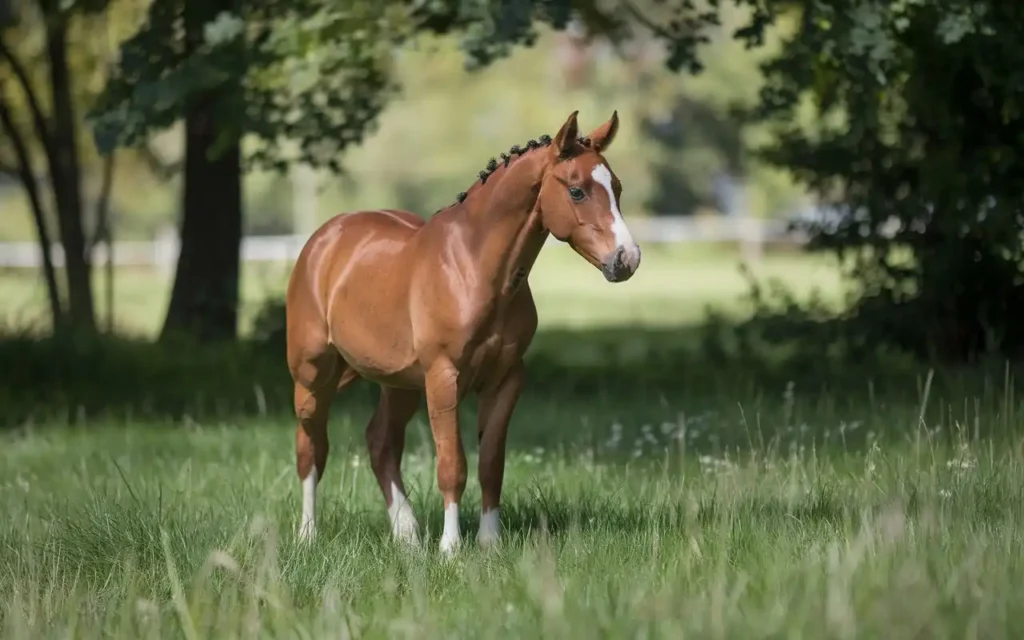
The First Few Days: What to Expect
Immediate Care After Birth
When a foal is born, the immediate focus is on its overall health and survival. However, taking care of the newborn horse hooves should begin within the first few hours. Foals usually stand and walk shortly after birth. But, check that their hooves are not too long or damaged. If you notice any irregularities, consult with a veterinarian for guidance.
The Role of the Hoof in Newborn Development
The hoof plays a vital role in the foal’s ability to stand and move, which is critical for its growth and muscle development. The first few days are crucial for hoof health, as they ensure the foal can move freely, start nursing, and develop a strong frame.
Hoof Cleaning and Maintenance
How to Clean Newborn Horse Hooves Properly
Cleaning newborn horse hooves is a delicate process. Use a soft hoof pick. It will remove debris, dirt, and manure. Be gentle to avoid causing injury, as the hooves are soft and sensitive. Clean hooves are less likely to get infections. So, check them regularly, especially after the foal has been in a stall or outside in the mud.
Tools Needed for Hoof Maintenance
Essential tools for hoof care include a hoof pick, soft brush, and clean water. A hoof rasp may be necessary for trimming if the hooves start to get too long. Having the right tools on hand ensures that you can perform regular maintenance without harming the foal’s delicate hooves.
Trim and Shape: When and How
First Hoof Trim: Timing and Techniques
The first trim for newborn horse hooves typically happens when the foal is a few weeks old. However, this varies depending on the foal’s growth rate and the condition of the hooves. During the first trim, it’s essential to remove only a small amount of the hoof to prevent over-trimming. Over-trimming can cause discomfort and affect the foal’s ability to walk properly.
Benefits of Proper Hoof Shaping
Properly shaping hooves ensures that the foal’s legs align correctly and reduces the risk of joint problems. A good hoof shape promotes better movement and reduces the likelihood of developing hoof imbalances later in life.
Common Hoof Problems in Newborns
How to Spot and Prevent Infection
Infections are a common concern with newborn horse hooves. One of the first signs of infection is swelling around the hoof or a foul odor. If you see these symptoms, consult a vet right away. Infections can spread quickly in foals, and early intervention is vital to prevent complications.
Dealing with Laminitis in Newborns
Laminitis is a painful condition that affects the hooves and can occur in newborn foals, though it’s rare. It can be caused by trauma, infection, or improper nutrition. If a foal shows lameness or pain, consult your vet. It may be laminitis. Discuss treatment options.
Nutrition for Healthy Hooves
The Role of Diet in Hoof Development
A proper diet is essential for the healthy development of newborn horse hooves. A balanced diet rich in essential nutrients like biotin, zinc, and methionine helps promote strong, healthy hooves. Be sure to provide the foal with high-quality hay and pasture, and supplement with necessary minerals and vitamins.
Essential Nutrients for Newborn Horses
In addition to a proper diet, consider adding hoof-specific supplements to the foal’s feed. These supplements can help improve the quality of the hooves and support their growth. Always consult with your veterinarian before adding any new supplements to ensure they are appropriate for your foal.
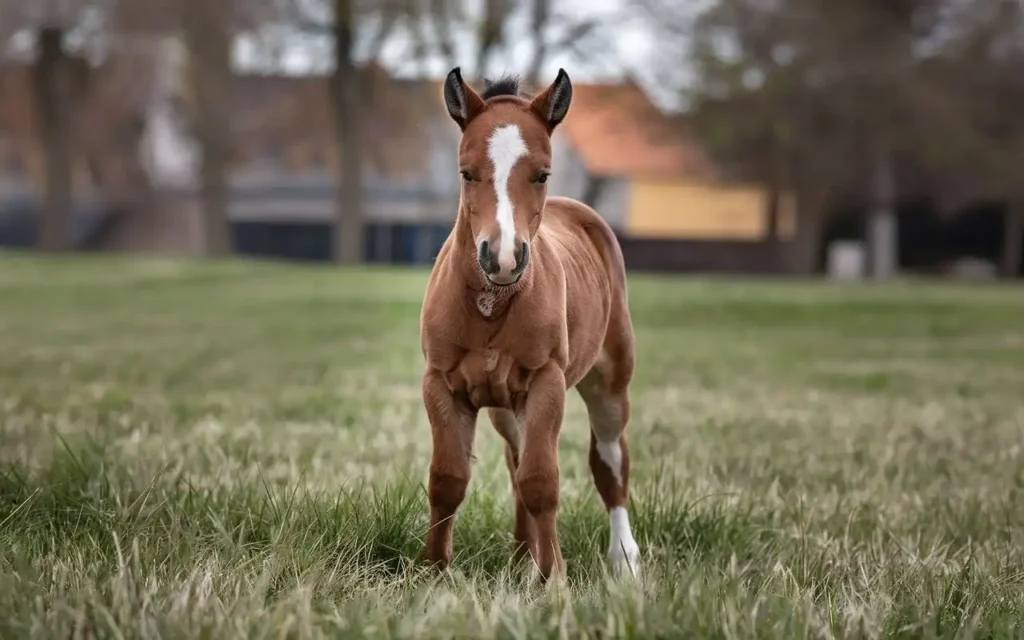
Environmental Considerations for Hoof Health
Ideal Living Conditions for Newborn Horses
A clean, dry environment is key to maintaining healthy newborn horse hooves. Wet conditions can soften hooves, making them more prone to damage and infection. Ensure that the foal has access to clean bedding and is not exposed to prolonged moisture.
How to Keep the Hooves Dry and Clean
Keeping the hooves dry is essential in preventing infections like thrush. Regularly check the foal’s environment for wet spots and remove any soiled bedding. A clean stall reduces the risk of the hooves becoming damp and infected.
The Importance of Movement for Hoof Growth
Encouraging Healthy Movement in Foals
Movement plays a critical role in developing strong, healthy hooves. Encourage your foal to walk around and stretch its legs. Walking and running wear down the hooves. This prevents excessive growth and promotes healthy development.
How Exercise Affects Hoof Strength
Exercise strengthens the muscles, ligaments, and tendons that support the hooves. It also helps the hooves naturally wear down, preventing overgrowth. If possible, let the foal interact with other foals or horses in a safe, enclosed area to encourage movement.
Hoof Care Routine: Establishing Good Habits
Daily and Weekly Care Tips
Establishing a regular hoof care routine is essential for the long-term health of newborn horse hooves. Make hoof cleaning part of your daily routine and perform regular inspections to catch potential issues early. Weekly checks for signs of infection or injury can help prevent more serious problems down the road.
Regular Hoof Inspections
Inspect the hooves at least once a day. Look for any signs of cracks, bruising, or abnormal growth. Early detection of hoof issues can save time, money, and discomfort in the long run.
Professional Hoof Care: When to Call the Farrier
When Should a Farrier Visit Your Foal?
A farrier’s visit is necessary when the foal’s hooves start growing faster or becoming uneven. A professional farrier will know how to handle a foal’s delicate hooves and will be able to trim them safely.
Choosing the Right Farrier for Newborn Horses
When selecting a farrier, look for someone experienced with foals. They should have a gentle touch and a good understanding of hoof development in newborn horses. Always ask for references or recommendations from other horse owners.
Signs Your Foal May Need Veterinary Attention
Identifying Hoof-related Health Issues Early
If your foal exhibits any of the following signs, it may require veterinary attention:
- Lameness or reluctance to walk
- Swelling around the hooves
- Discoloration or foul odor from the hooves
Common Hoof Injuries in Newborn Horses
Injuries to the hooves can happen during the foal’s first few weeks, whether from rough surfaces or a misstep. If you notice a cut or bruise on the hoof, it’s important to clean the area and monitor for signs of infection. Consult a veterinarian if the injury appears severe or if the foal shows signs of pain.
Prevention: How to Avoid Hoof Problems
Long-term Hoof Care Strategies
Regular hoof cleaning, trimming, and inspections prevent long-term hoof problems. A foal’s hooves grow quickly in the first year, so consistent care is necessary to promote healthy development.
Preventive Measures to Take Early On
Begin hoof care as early as possible, paying attention to the cleanliness of the environment and the foal’s nutrition. Proper care during the first few weeks can prevent many hoof-related problems later in life.
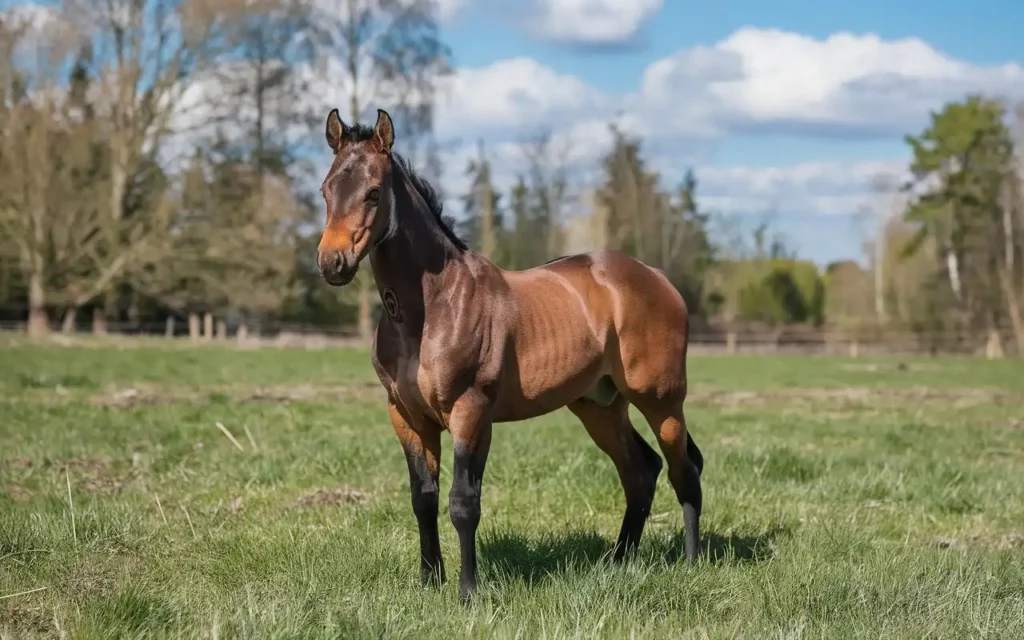
Conclusion
Caring for newborn horse hooves requires patience, attention to detail, and consistency. Starting hoof care early can ensure that your foal grows into a healthy adult horse with strong, sound hooves. Regular inspections, cleaning, trimming, and the right nutrition will set your foal on the path to optimal hoof health. By following these guidelines, you’ll provide the best care possible for your foal’s hooves.

